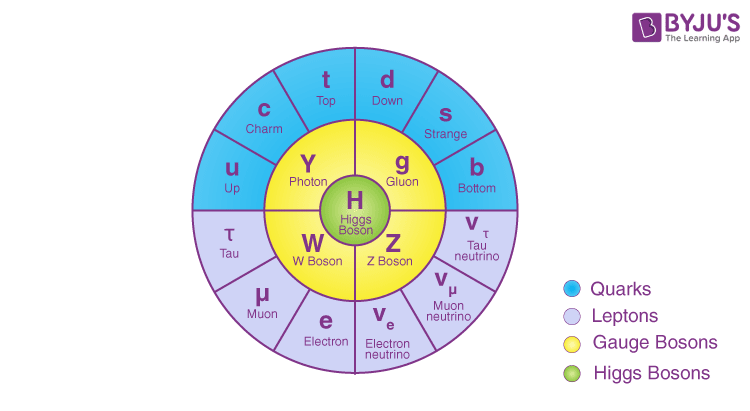The Higgs boson, often dubbed the “God particle,” has captivated physicists and the public alike since its theoretical inception in the 1960s and subsequent discovery in 2012. This particle is a fundamental component of the standard model of particle physics, a framework that describes the known elementary particles and the forces governing their interactions. Understanding the Higgs boson necessitates delving into the fabric of the universe itself—an intricate tapestry woven with the threads of quantum mechanics and relativity.
To grasp the significance of the Higgs boson, one must first appreciate its role within the Higgs field—a pervasive field that pervades all of space and time. The Higgs field is likened to a cosmic molasses: as particles traverse this field, they acquire mass through their interaction with it. This phenomenon can be visualized as a swimmer moving through a pool, encountering varying levels of resistance based on their density and shape. Particles interact with the Higgs field in different ways, determining their mass, which in turn influences the formation and stability of matter in the universe.
The theoretical underpinnings of the Higgs mechanism—initially proposed by physicists Peter Higgs and his contemporaries—reveal a profound truth about the nature of mass. Without the Higgs field, particles would remain massless, and the universe as we know it would be drastically different. Atoms would not combine to form complex structures; stars and galaxies would struggle to coalesce. Hence, the discovery of the Higgs boson not only validated an essential element of the standard model but also affirmed the very existence of the Higgs field and its transformative role in the universe.
When the Higgs boson was detected at the Large Hadron Collider (LHC) in Switzerland, the scientific community rejoiced—a monumental achievement that confirmed decades of theoretical work. The LHC operates as a particle accelerator, colliding protons at near-light speeds to create conditions that replicate those of the early universe. In those fleeting moments after the Big Bang, it is theorized that the Higgs field transitioned from a high-energy state to the familiar reality we experience today. The detection of the Higgs boson thus represents a window into the primordial state of our universe.
But why is the Higgs boson genuinely significant beyond its role in the standard model? It is because understanding this particle illuminates the properties of the universe and the fundamental forces that govern it. The Higgs boson carries implications for other areas of research, such as cosmology and theories of fundamental physics, including energy scales and the existence of dark matter. For instance, the mass of the Higgs boson itself provides insight into the stability of the universe; a heavier Higgs could imply an unstable vacuum that might eventually lead to dire cosmic consequences.
Furthermore, examining the Higgs boson invites contemplation of deeper questions concerning the universe’s fate and structure. Researchers are intrigued by the notion of supersymmetry, a theory proposing that each particle has a heavier partner. If verified, this could bridge gaps in understanding dark matter, as well as unify the forces of nature under a more comprehensive theory—a “theory of everything.” The Higgs boson’s behavior in high-energy settings could give rise to new phenomena outside the standard model, necessitating a reevaluation of our current understanding of particle physics.
As investigations into the Higgs boson continue, emerging data is likely to inspire novel theories and potential paradigms within physics. The elusive nature of this particle is reminiscent of the age-old pursuit of knowledge—an ever-evolving quest where each discovery paves the way for additional enigmas. The interplay of inquiry and imagination in the realm of particle physics is where the Higgs boson resonates as a symbol of our collective intellectual aspirations.
Moreover, the implications of the Higgs boson extend beyond theoretical physics and into the profound philosophical discourse on existence. It serves as a reminder of humanity’s insatiable curiosity and desire to decipher the grand mysteries of the cosmos. The very act of seeking to understand the fundamental constituents of matter echoes the perennial quest for meaning—a bridge between science and philosophy, reality and the metaphysical.
Moreover, the public’s fascination with the Higgs boson can serve as a catalyst for increased interest in science, education, and research funding. It exemplifies how complex scientific concepts can capture the imagination when articulated effectively. The narrative of the Higgs boson enriches the cultural tapestry, inspiring future generations to engage with the sciences and contribute to the ongoing legacy of scientific exploration.
In conclusion, the Higgs boson is not merely a particle; it represents a profound intersection of science, philosophy, and the essence of our universe. Its study is crucial for deciphering the mechanisms underlying mass, the stability of the universe, and potential discoveries that lie beyond our current understanding. As research efforts persist, the Higgs boson will undoubtedly continue to inspire and challenge our conception of reality and the very nature of existence itself. In the grand scheme of cosmic understanding — the Higgs boson occupies a place of both pivotal importance and awe, much akin to the stars that illuminate our night sky.












